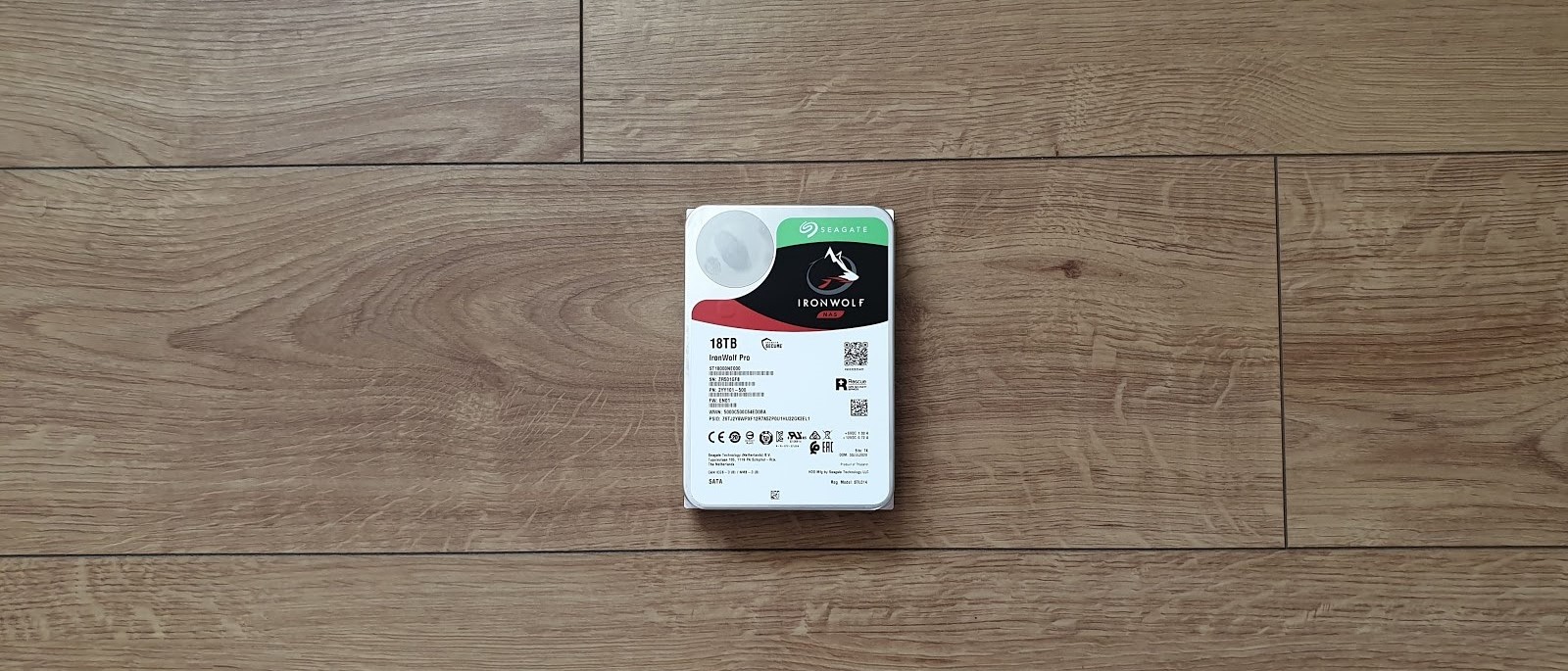TechRadar Verdict
The Seagate Ironwolf Pro remains one of the largest NAS drives currently on the market and it pips the competition by offering an altogether better package albeit at a slightly higher price.
Pros
- +
Five year warranty
- +
Advanced drive management solution
- +
Bundled data recovery services
Cons
- -
More expensive than the competition
Why you can trust TechRadar
Hard disk drives are quietly increasing in capacity and one of the areas of growth remains local storage, not in terms of personal computers but across network attached storage or NAS devices where one or more hard drives tend to be deployed.
Seagate has recently unveiled two 18TB hard disk drives, the Exos which is geared towards the enterprise/data center/hyperscale market and the Ironwolf, which targets the prosumer/enthusiast market looking for something a bit more reliable than your entry level HDD.
Today, we’re reviewing the IronWolf Pro (ST18000NE000), currently the highest capacity NAS hard drive from Seagate.
Price
The 18TB IronWolf Pro from Seagate costs $588 from SimplyNAS/QNAPDirect at the time of writing and £480 from Scan, a popular UK based retailer. In both cases, shipping and taxes are excluded. 10TB, 12TB, 14TB and 16TB models are also available.
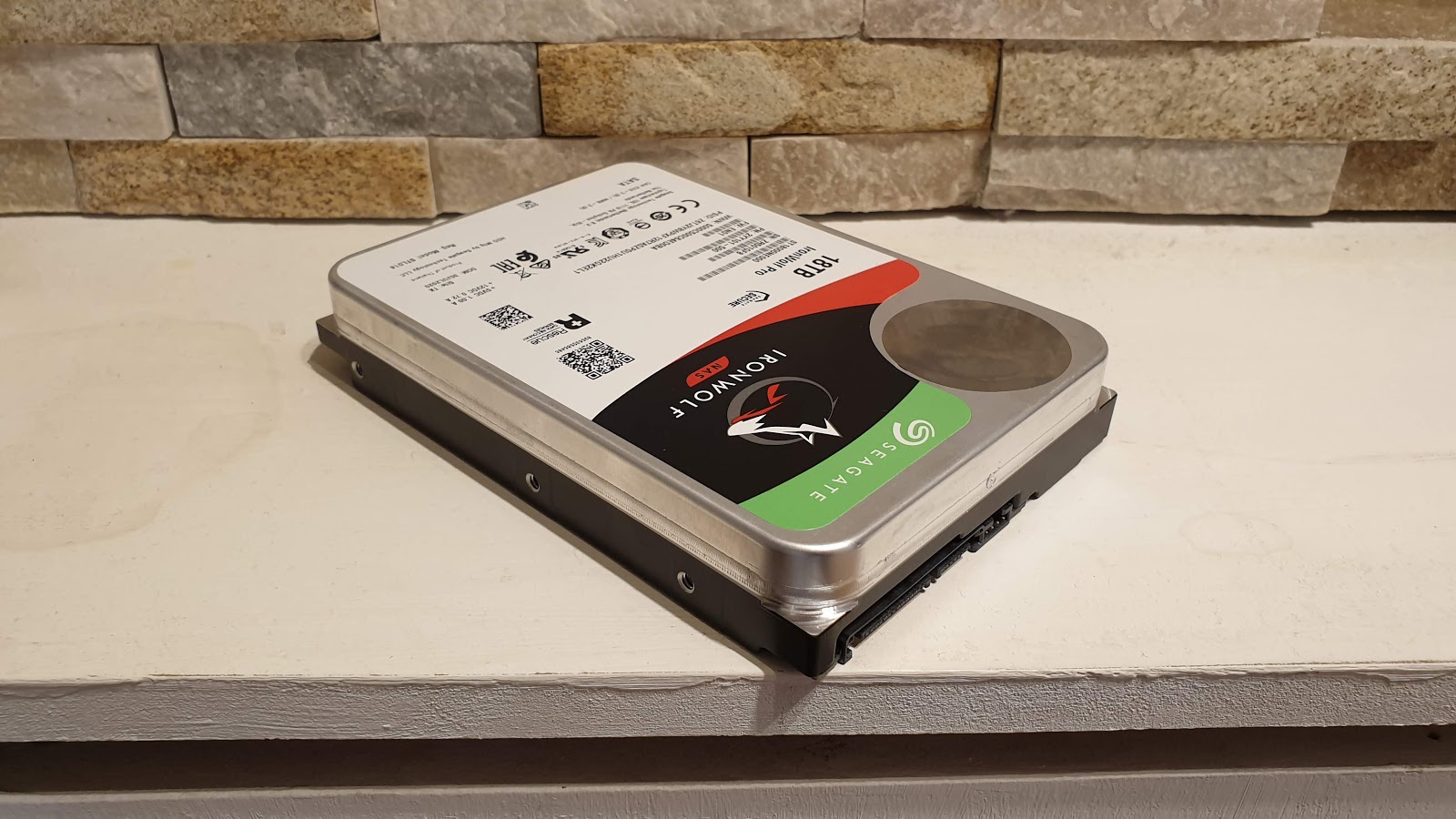
The hardware
There’s no need to describe how a 3.5-inch hard disk drive looks like as they’re all similar. The model we received is a SATA one made in Thailand and is designed to be used in business-grade NAS appliances of up to 24 bays, so offering a capacity of up to 432TB.
The Seagate IronWolf Pro 18TB is based on conventional magnetic recording (CMR, which in the current case is represented by a combination of PMR and TDMR) and is helium-filled. Other than being hot-pluggable, it has a workload rate limit of 300TB per year meaning that it is designed to work 24/7.
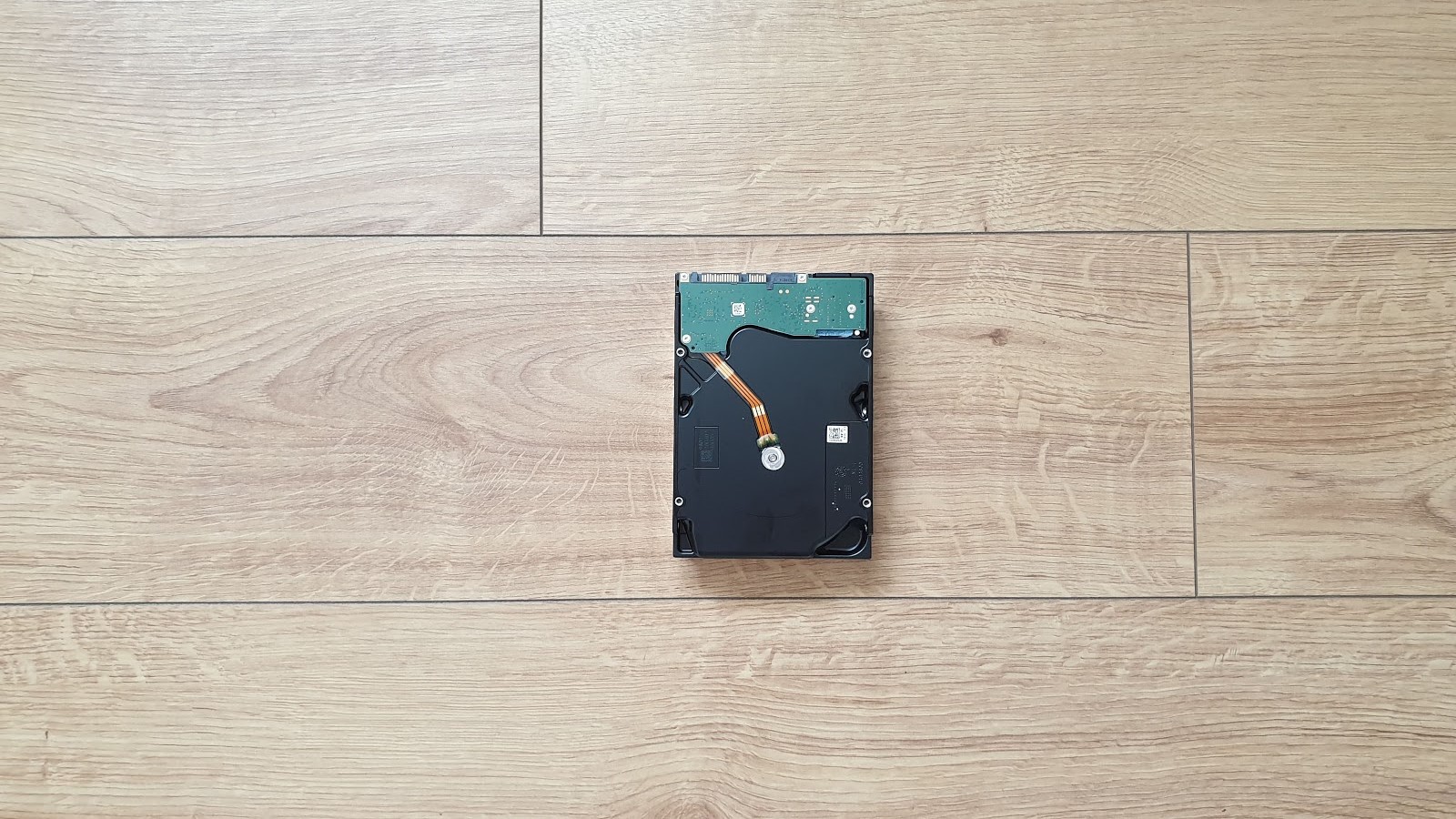
The drive is made up of nine 2TB platters (with 18 heads) offering the highest areal density across the industry, 256MB cache and has a spindle speed of up to 7200RPM. There’s a dual-attached motor and RV sensors to guarantee steady performance, which means 1.2 million hours MTBF.
Sign up to the TechRadar Pro newsletter to get all the top news, opinion, features and guidance your business needs to succeed!
When it comes to performance, the IronWolf Pro 18TB is rated for an up to 260MB/s sustained transfer rate as well as an average latency of 4.16ms. As for power consumption, the drive is rated for up to 8W average operating power as well as 5.2W idle power.
The features
The drive comes with a five-year warranty with a three-year subscription to Seagate’s Rescue Data Recovery Plan. Once registered, you will be able to benefit from what Seagate calls “a global team of world-class data recovery experts in case of unexpected data loss” with a claimed successful data recovery rate of 90%. Note that the service is not available in all countries.
The drive also comes with IronWolf Health Management (IHM) system which Seagate says, “improves overall system reliability by displaying actionable prevention, intervention, and recovery options”. What that means is that when paired with a compatible NAS solution (e.g. QNAP, Synology, Asustor), the overall system reliability will increase due to better monitoring and user alerts. You can learn more about that feature here.
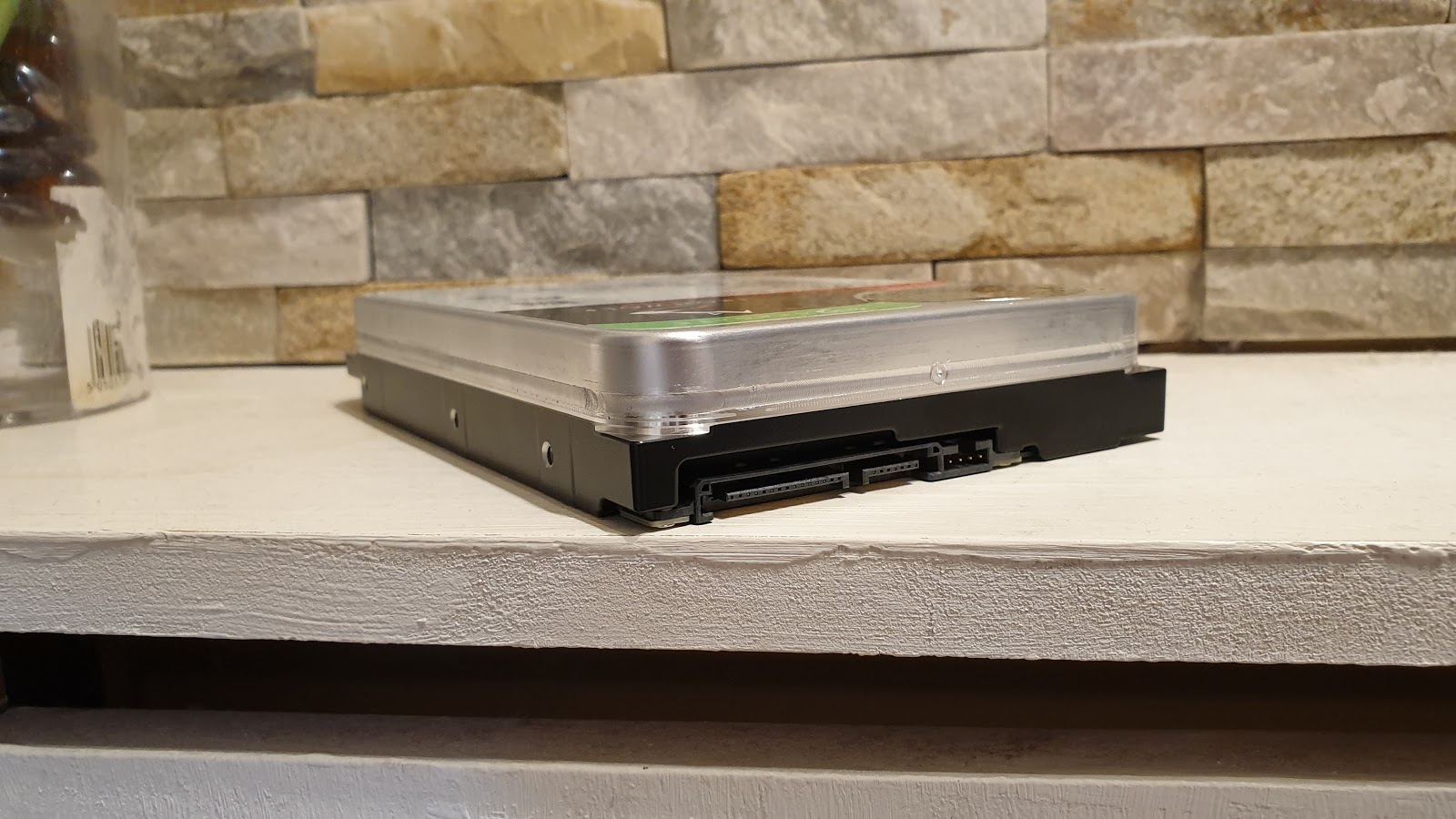
Performance
We went for something slightly different this time around. Instead of doing the usual performance test inside a computer or a NAS enclosure, we took it for a run, putting in an enclosure and using it as an external hard drive.
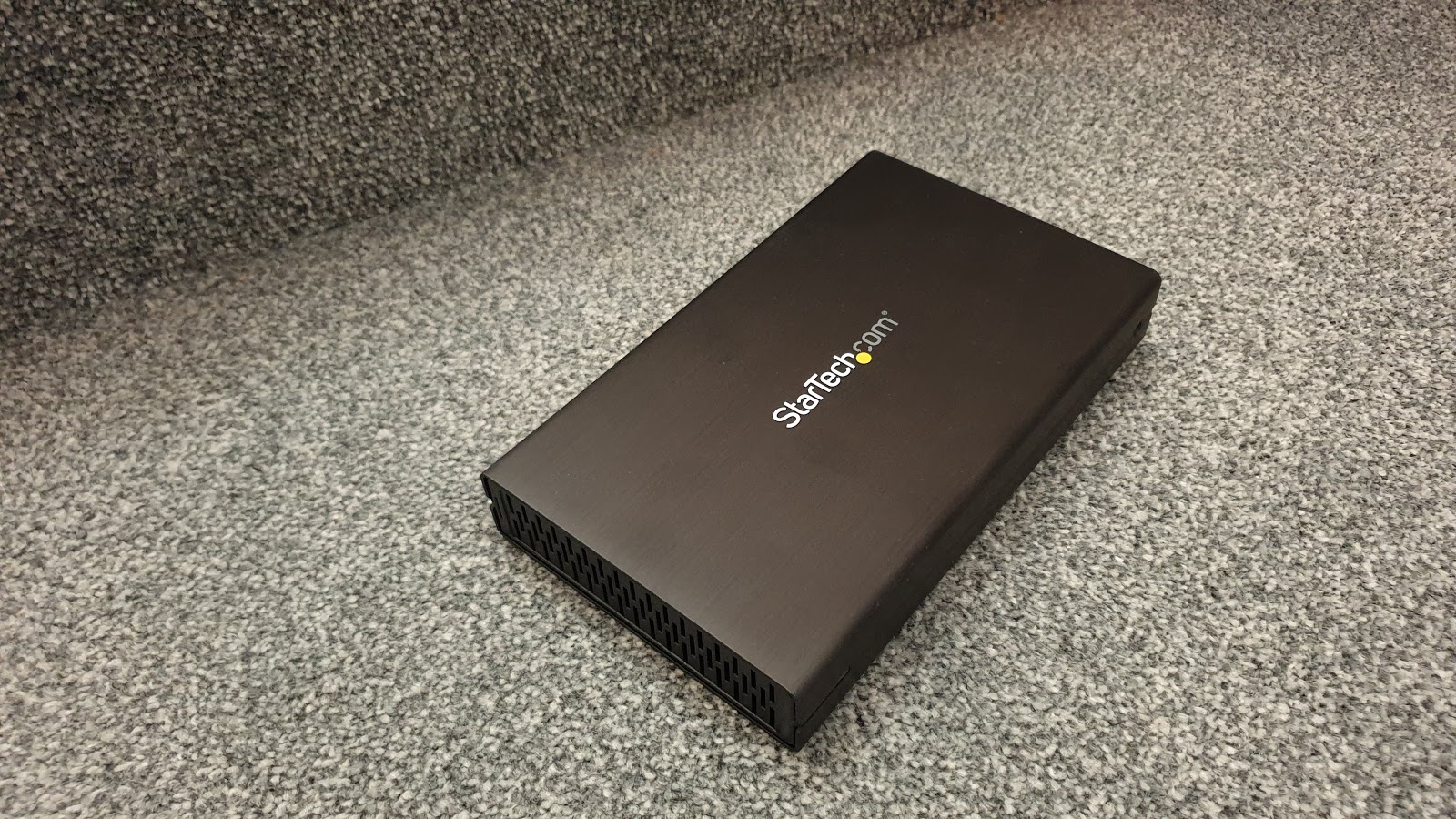
We chose the Startech S351BU313, a USB 3.1 (10Gbps) enclosure which costs $68 and comes with a two-year warranty; in went the Ironwolf Pro 18TB to create what was technically the biggest external hard disk drive (of course, you can do the same with a 100TB SSD to get the world’s largest single external drive).
Here’s how the Seagate Ironwolf Pro 18TB performed in our benchmark tests:
CrystalDiskMark: 272MBps (read); 265MBps (write)
Atto: 258MBps (read, 256mb); 256MBps (write, 256mb)
AS SSD: 257MBps (seq read); 224MBps (seq write)
AJA: 255MBps (read) ; 183MBps (write)
The larger the drive, the higher the data transfer rate in general; Seagate quotes a 7.8% increase going from 12TB to 18TB, small but not-so-negligible. The numbers we recorded in our benchmark are unambiguous; this is a very, very fast hard disk drive when used as external storage.
The IronWolf Pro reached a whopping 272MBps and 265MBps read/write speeds on Crystaldiskmark, the fastest non-SSD speeds we’ve recorded to date and not very far from some of the slowest SSD we’ve looked at over the past couple of years. It took 122.5 seconds to transfer a single 10GB file, which translates into a real-life speed of just under 82MBps.
The competition
The Ironwolf Pro has a per TB cost of just under $33 which is relatively low given that this is a premium product.
However, at the time of writing we managed to source the Seagate Exos 16TB for as little as $365 or under $23 per TB. It is identical to the IronWolf Pro except for the lack of the Rescue Data Recovery Plan and the IronWolf Health management solution. Bear in mind that this is an enterprise hard drive.
Elsewhere, the Western Digital 18TB NAS Drive, an almost exact copy hardware wise, for just under $480. Although it has a 2x MTBF, there’s no fancy drive management, extended warranty (only three years instead of five) or Rescue Data Recovery Plan. Is the extra 23% premium worth it? In the grander scheme of things, we’d say yes.
Final verdict
Hard disk drives still make up the most of the storage market both in the enterprise and in the consumer markets in terms of capacity. However, they’re stalling with CMR reaching a plateau and SMR, proving to be a poisoned chalice and not a technology that will get NAS owners enthused.
What we’re all waiting for is HAMR; drives based on this technology are expected to be launched later this year with a 20TB likely to come from Seagate, debuting most probably at around $700. Constrained by physical factors, it is unlikely that we will see more platters added; nine seems to be the limit. Any extra capacity will come from increasing the areal platter density.
Back to the IronWolf Pro; it is one of three models focusing on the NAS market that deliver 18TB capacity. It is the most expensive (not by much) but its extended warranty combined with enhanced data recovery services make it a worthwhile investment.
- We've also highlighted the best NAS drive

Désiré has been musing and writing about technology during a career spanning four decades. He dabbled in website builders and web hosting when DHTML and frames were in vogue and started narrating about the impact of technology on society just before the start of the Y2K hysteria at the turn of the last millennium.
